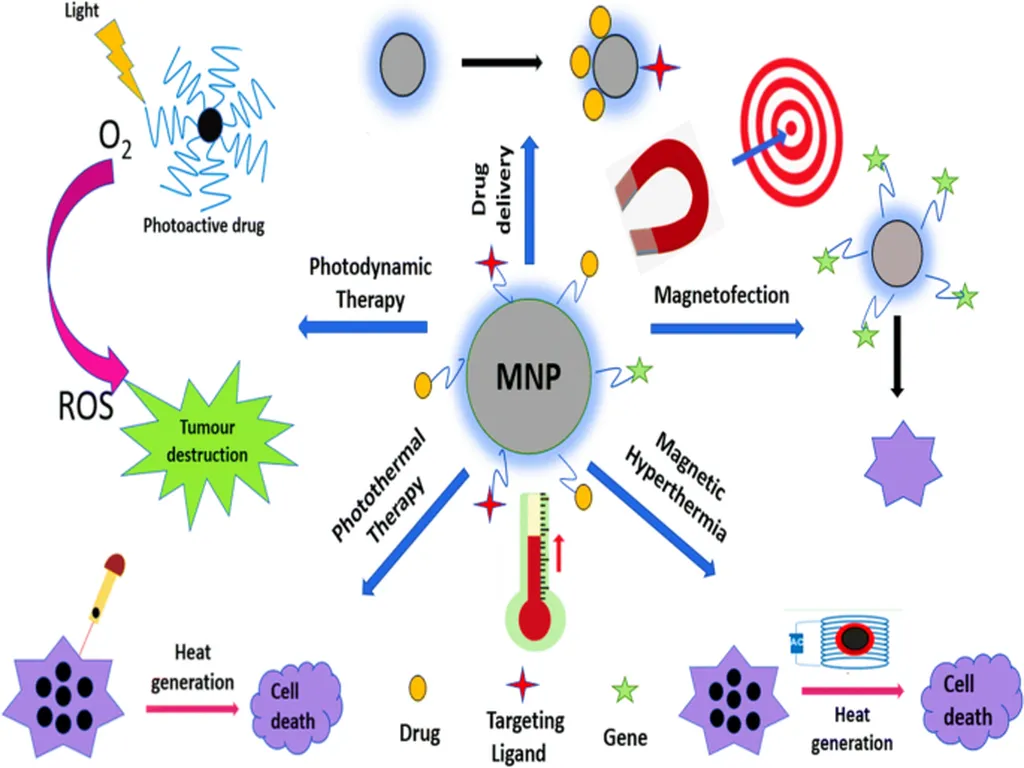In the bustling world of biomedical research, a groundbreaking study led by Yu Chen from the Department of Orthopaedics at The First Affiliated Hospital of Soochow University has caught the attention of professionals across various sectors. Published in the esteemed journal *Bioactive Materials* (translated to English as *活性材料*), this research delves into the promising realm of magnetic hyperthermia therapy (MHT) and its potential to revolutionize drug delivery and biomedical applications.
MHT, a cutting-edge physiotherapeutic approach, offers a unique set of advantages that set it apart from traditional methods. Its minimal invasiveness, precise temperature control, and deep tissue penetration capabilities make it a game-changer in the field. “MHT provides unparalleled control over heating areas and temperatures, boasting high efficiency and excellent tissue penetration, all while remaining independent of biological tissues,” Chen explains. This innovative technique harnesses the power of magnetic nanoparticles (MNPs) to convert magnetic energy into thermal energy under an alternating magnetic field (AMF), achieving remarkable therapeutic effects.
The study presents an exhaustive review of the research progress in MHT, outlining the overall landscape, including physical heat generation mechanisms, types of magnetic nanoparticles and conductive nonmagnetic materials, and strategies to increase the thermal efficiency of MNPs. Chen and his team also delve into experimental evidence and research progress on the “hot-spot” effects, providing a comprehensive overview of the field.
One of the most compelling aspects of this research is its focus on biomedical applications and targeted drug delivery. Advanced magnetic nanocomposite platforms based on MNPs can avoid various risks associated with traditional tools, achieving precise, on-demand, or continuous targeted drug delivery and release through multiple approaches. This innovation opens up new possibilities for antitumor therapy, thrombus dissolution, and other biomedical applications.
The progress of clinical trials on MNPs-mediated MHT (MNPs-MHT) is also summarized in the study, highlighting the potential clinical applications of this groundbreaking therapy. However, the research does not shy away from discussing the limitations, major challenges, and prospects in the clinical translation of MHT. “Our objective is to provide a panoramic view of biomedical applications and targeted drug delivery of MHT, which can potentially guide researchers and facilitate the successful implementation of advanced MNPs-MHT systems in the future,” Chen states.
The implications of this research extend beyond the biomedical field, with potential commercial impacts for the energy sector. The precise control and efficiency of MHT could inspire new approaches to energy management and conversion, offering innovative solutions to longstanding challenges.
As the world continues to grapple with complex health issues and energy demands, the work of Yu Chen and his team offers a beacon of hope and a testament to the power of innovative research. The study published in *Bioactive Materials* serves as a catalyst for further exploration and development in the field of magnetic hyperthermia therapy, paving the way for a future where advanced MNPs-MHT systems become a reality.

